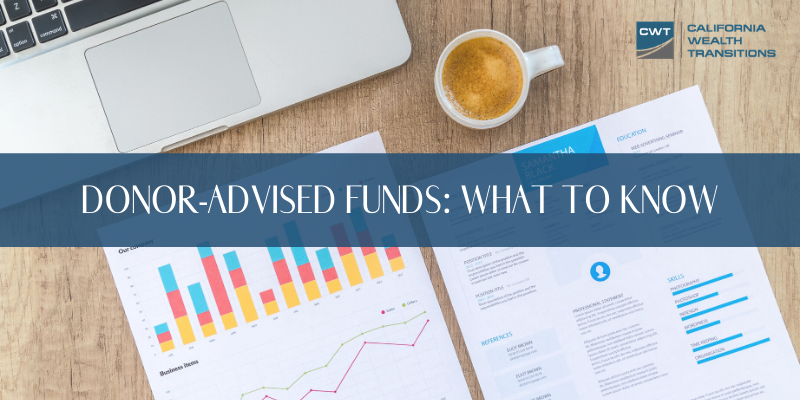If you are a charitable investor, a donor-advised fund may be the solution you’ve been looking for. When it comes to the different ways to donate to charity, most people do not know what donor-advised funds are or how they work. Most importantly, many people don’t know how the use of donor advised funds can potentially increase your tax savings over a regular charitable contribution.
For those looking to reduce their taxes in the current year, donor-advised funds are a great way to give back. This type of account allows you to contribute to nonprofits while receiving an immediate tax deduction. Keep reading to learn the basics of donor-advised funds and how to maximize your tax savings.
First, What Are Donor-Advised Funds?
Donor-advised funds (DAF) are a great way pledge assets to charity in the future while instantly receiving a tax deduction. Likewise, “the donor-advised fund essentially functions as a conduit, where the donor receives a tax deduction when the money goes into the DAF, but has discretion about when the assets will finally leave the DAF and actually go to the charity… and in the meantime, assets inside a donor-advised fund grow tax-free,” (Kitces).
While making it easy and quick to contribute and receive a tax deduction, you still must make sure you do your proper research on which donor-advised fund you choose to donate to. Regardless of which donor-advised fund you choose, you will have to pay some fees and expenses depending on the type of charity or nonprofit. The types of charities you can choose to donate to must be IRS-qualified public charities with grant recommendations from the DAF. When you choose a charity, you also have the choice of whether or not your donations will be anonymous, and you can also include a specific purpose or relay a message (i.e. in memory of, in honor of) when donating.
The types of donations you can contribute include cash, checks, publicly traded securities or mutual fund shares, shares of a privately held business, restricted stock, cryptocurrencies, and more. Accepted donation types is determined by the management team of the donor advised fund you select.
So, How Can Donor-Advised Funds Save Me Tax Dollars?
Consider an example, you are charitably inclined and want to contribute $50,000 to charity later this year. You have $50,000 in cash in a savings account and a large investment portfolio. One of the stocks you own has doubled and grown to $50,000 in your investment portfolio. So which do you donate?
You would be subject to capital gains tax if you sold the shares, so you don’t want to sell the shares and contribute the proceeds, you should just contribute the cash in your savings and keep the shares invested right?
Wrong! By using a Donor-Advised Fund you can donate the shares without having to sell them. Therefore, it makes good financial sense to donate the appreciated investments rather than donating $50,000 in cash. By donating stocks instead of cash, you can potentially eliminate the capital gains tax while becoming eligible for a charitable tax deduction equal to the value of the securities. The best part? You can transfer that $50,000 in cash to your investment account and repurchase the same shares you just sold, eliminating the capital gain while keeping the position in your portfolio.
There are other smart money strategies around DAFs such as incorporating it into your investment portfolio’s rebalancing schedule, contributing a highly performing stock and then immediately repurchasing the same shares to avoid the gain as we mentioned above, pre-funding a donation in a high-income year to offset ordinary income taxes, etc.
The sale of a business is a great opportunity for a strategy like this as the year you sell your business is most likely the highest income year of your life. If you were to set aside shares of the company prior to the sale, you could fund a lifetime of charitable giving for you and your family while avoiding capital gains tax on those shares.
Because the rules around donor-advised funds can seem complicated, we are here to help you figure out the best plan of action for your personal situation, all while giving to a good cause. If you would like to speak with an advisor about how you can begin taking action or if you need recommendations for donor-advised funds in Southern California, click here to schedule a quick introductory call.
Fidelity. “What Is a Donor-Advised Fund?” Fidelity Charitable, 2020, www.fidelitycharitable.org/guidance/philanthropy/what-is-a-donor-advised-fund.html.
Kitces, Michael. “Rules & Strategies When Using Donor-Advised Funds.” Nerd’s Eye View | Kitces.com, 1 Feb. 2019, www.kitces.com/blog/rules-strategies-and-tactics-when-using-donor-advised-funds-for-charitable-giving/.


